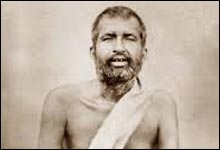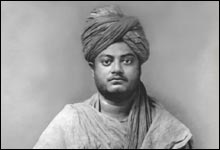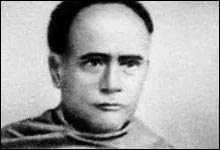GREAT INDIAN PERSONALITIES : Rabindranath Tagore

Rabindranath Tagore was born in Calcutta, India into an affluent Brahmin family. After a short continue in England (1878) to effort to learn law, he returned to India, and as an alternative pursued a career as a writer, playwright, songwriter, poet, philosopher and educator. His father's name was the Maharishi Debendranath Tagore, a well known Hindu reformer and spiritualist and his mother was Shrimati Sharada Devi.
On the way over to England he began translating, for the first time, his most recent selections of poems, Gitanjali, into English. His expressions evoked immense delicacy. No one had yet read something like it. A glance of the spirituality and over-romantic attractiveness of Indian ethnicity were discovered to the West for the first time. Less than a year afterward, in 1913, Rabindranath acknowledged the Nobel Prize for literature. He was the first non-westerner to be so privileged.
In 1901 he founded the school, Santiniketan, at Bolpur in Birbhum. The school was a great success and gave birth to Viswabharati. It became a great seat of culture and learning. In 1913 he received the Nobel Prize for literature following the publication of his collection of poems Gitanjali. Rabindranath Tagore's contribution to Bengali language and literature is unparallel. He wrote many novels, short stories, plays and poems. Some of Tagore's novels include Bauthakuranir Hat, Rajarshi, Naukadubi, Chokher-Bali, Gora and Ghare Baire. Tagore was an ardent patriot.
His most intense period of political activity was in the years following 1905, when the agitation against the partition of Bengal was at its highest. He renounced his knighthood in 1919 as a protest against the Amritsar massacre. His patriotic poems and songs, India's national anthem Jana Gana Mana have passed into the common heritage of his country.

He was divergent to patriotism and militarism as a substance of principle, and in its place promoted pious morals and the formation of a new world civilization founded in multi-culturalism, variety and lenience. He served as a religious and imaginative inspiration to his countrymen, and certainly, the entire world. He used the resources from his inscription and lecturing to enlarge upon the educate he had founded in 1901 now known as Visva Bharati, where he tried his Upanishadic principles of teaching. He gave all his currency from Nobel Prize and royalty cash from his books to this University.
From time to time he participated in the Indian supporter of independence movement, though in his own non-sentimental and creative thinker way;
Rabindranath Tagore's inventive production proves a lot about this revitalization man. The diversity, excellence and magnitude are incredible.
As an author, Tagore mostly worked in Bengali, but subsequent to his achievement with Gitanjali, he translated numerous of his additional workings into English. He wrote over one thousand poems; eight volumes of short stories; approximately two dozen plays and play-lets; eight novels; and many books and essays on philosophy, religion, education and social topics. Tagore wrote eight novels and four novellas, including
Chaturanga, Shesher Kobita,Char Odhay,and Noukadubi. Even though Tagore wrote fruitfully in all fictional genres, he was first of all a poet. In the midst of his fifty and odd volumes of poetry are Manasi (1890) [The Ideal One], Sonar Tari (1894) [The Golden Boat], Gitanjali (1910) [Song Offerings], Gitimalya (1914) [Wreath of Songs], and Balaka (1916) [The Flight of Cranes] Sideways from language and drama, his supplementary enormous love was music, Bengali style. He composed more than two thousand songs, both the music and lyrics. Two of them became the national anthems of India and Bangladesh. In 1929 he even began painting. In addition these, he wrote melodic dramas, dance dramas, essays of all types, travel diaries, and two autobiographies. Tagore also left plentiful drawings and paintings, and songs for which he wrote the composition himself. Even though Tagore is an excellent envoy of his nation - India - the man who wrote its national anthem - his existence and workings go far away fromhis country. He is essentially a man of the whole Earth, a product of the most excellent of both conventional Indian, and contemporary Western cultures.
Where the mind is without fear
Where the mind is without fear and the head is held high
Where knowledge is free
Where the world has not been broken up into fragments
By narrow domestic walls
Where words come out from the depth of truth
Where tireless striving stretches its arms towards perfection
Where the clear stream of reason has not lost its way
Into the dreary desert sand of dead habit
Where the mind is led forward by thee
Into ever-widening thought and action
Into that heaven of freedom, my Father,
let my country awake


